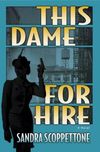There was an interesting interview with CBS chief Les Moonves in the Sunday NYT. In explaining why he canceled JOAN OF ARCADIA, he revealed his take on what audiences want from a story.
On this particular Thursday, at 11 a.m., Moonves was considering which of the
network’s current shows to cancel in order to make room for new programs. He had
decided to take a once-promising show called ”Joan of Arcadia” off the air.
The show was about a teenager who receives directives and advice straight from
God. ”In the beginning, it was a fresh idea and uplifting, and the plot lines
were engaging,” Moonves said, sounding a little sad and frustrated. ”But the
show got too dark. I understand why creative people like dark, but American
audiences don’t like dark. They like story. They do not respond to nervous
breakdowns and unhappy episodes that lead nowhere. They like their characters to
be a part of the action. They like strength, not weakness, a chance to work out
any dilemma. This is a country built on optimism.”
The last point strikes home with me. We like heroes who move the story along…and, ideally, there should actually be a story to move along. That means a story with a beginning, middle and end with clear stakes for the characters. The characters shouldn’t be caught up in events, reacting to what happens, they should be driving what happens through their own actions. That’s good story-telling, plain and simple.
Moonves has constructed a Bush-like universe (without the politics): in his
dramas, there is a continuing battle for order and justice, the team works
together and a headstrong boss leads the way. Producers looking to sell shows to CBS either comply with this point of view
or take their shows elsewhere.
Curiously, most of CBS’s successful dramas — the three ”C.S.I.” shows,
”Without a Trace” and many of the new about-to-be-discussed drama pilots —
revolve around a group of specially trained professionals who work in unison and
are headed by a dynamic, attractive middle-aged man. These prime-time-TV teams
— much like Moonves’s own — are determined and work-obsessed. They seem to
think of their office as an extended family while, together, they solve crimes.
In a way, it’s an old-fashioned model, harkening back to hits like HAWAII FIVE-O and MISSION IMPOSSIBLE, but with a new spin (reminds me of how NBC touted LAW AND ORDER: CRIMINAL INTENT as ground-breaking show because we’d also see things from the bad guy’s pov…I guess no one at NBC had ever seen BARNABY JONES or STREETS OF SAN FRANCISCO). Speaking of taking cues from the past, Moonves’ plans for revamping the news division sound like he’s channeling Fred Silverman.
Read more
 A while back, author Sandra Scoppettone blogged about how the back cover of her THIS DAME FOR HIRE galley promised booksellers all kinds of advertising and promotion to support the book… which never happened. Why? Because they were lies and publishers assume booksellers won’t notice. Her editor even copped to it:
A while back, author Sandra Scoppettone blogged about how the back cover of her THIS DAME FOR HIRE galley promised booksellers all kinds of advertising and promotion to support the book… which never happened. Why? Because they were lies and publishers assume booksellers won’t notice. Her editor even copped to it: